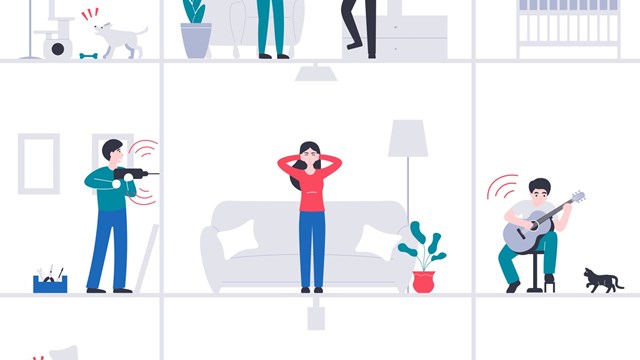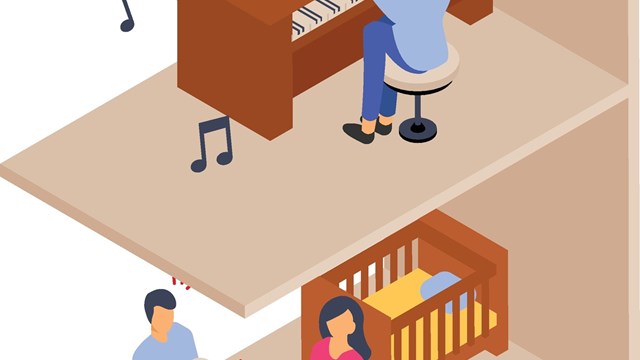– Concerned Unit Owner
“First, to the extent possible, the unit owner should ascertain whether the building and/or his unit complies with building code and whether proper levels of insulation have been installed. Second, the offering plan should be checked for any representations or specifications as to either soundproofing, insulation or noise. If the developer failed to comply with either the building code or its own specifications and/or representations, then a claim should be filed under the warranty detailed in the offering plan. An architect or engineer should be brought in to inspect those parts of the unit owner’s apartment to which he can obtain access in order to determine whether the unit was constructed according to code or the sponsor’s specifications.
“Generally, enforcement of any oral representations that the sponsor may have made about noise before the contract of sale was signed would be barred by the provision in the contract which provides that the purchaser is not relying on any representations made by seller that are not contained in the contract. Of course, if any provisions relating to noise or insulation were negotiated into the contract, those could be enforced.
“Since the letter writer indicates that complaints are pouring in, if this is a building-wide problem, then, it may be possible to file a claim against the sponsor relating to construction defects in the entire building. If the individual unit owners control the board of managers, they may be able to vote to have the building sue the sponsor if the building was not built to code or to the sponsor’s representations and specifications. If the sponsor controls the board of managers, individual unit owners may need to band together to file a claim derivatively on behalf of the condominium because it is unlikely that a sponsor-controlled board would bring a suit against itself.
“Lastly, if the sponsor has no liability or responsibility to abate the noise, then the individual unit owner would want to work with their architect/engineer to figure out what steps may be taken to reduce the noise. This could include the installation of acoustic tiles, carpeting and/or application of some soundproofing material.”










Leave a Comment